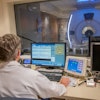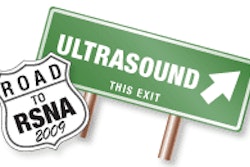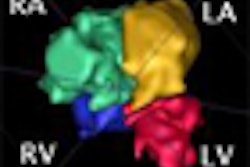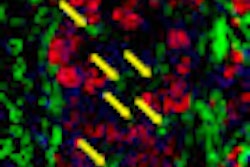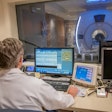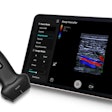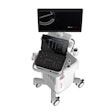ORLANDO, FL - Heart screening isn't just for athletes anymore. Researchers at this week's American Heart Association (AHA) meeting said that screening all middle-school-aged children for cardiac abnormalities with a targeted medical history, physical exam, electrocardiogram (ECG), and echocardiograph can identify those at risk of heart problems before they head out for recess.
"We think that all school-aged children are at risk," said Dr. John Higgins, professor of cardiology at the University of Texas Health Science Center in Houston. "If you think about it, the kids that don't go out for athletics may be the ones who are prevented from participating in sports due to underlying conditions."
In a report presented on Sunday at the AHA meeting, Higgins and colleagues used the four-point program to screen 94 of 150 eligible sixth graders at a Houston school; the students were ages 11 to 14 years and about 57% were girls.
"It takes about 15 to 20 minutes to perform all the tests in the program," Higgins said. "We take all the equipment to the school." The program is part of the Houston Early-Age Risk Testing and Screening (HEARTS) program.
Results included the following:
- Three children were found with newly diagnosed stage 2 hypertension and left ventricular hypertrophy by both echocardiography and electrocardiography.
- Seven children were diagnosed with two major underlying heart conditions: aortic root dilation and aortic coarctation, while five minor problems -- mitral valve prolapse, septal defects, and patent foramen ovale -- were also identified.
- All seven of the cardiac abnormalities were identified with echocardiography.
"Echocardiography was a critical element in diagnosing abnormalities and correcting electrocardiography misdiagnoses," Higgins noted in the poster presentation. "A standardized four-point screening test is easily applied to a group of asymptomatic school-aged children."
While the tests did identify children with heart abnormalities, Dr. Robert Bonow of Northwestern University in Chicago, a spokesperson for the Dallas-based AHA, said the costs and time to screen all school-aged children would constitute a formidable task.
"I think a good clinical workup would have likely found all the critical abnormalities," he said.
In the study, Higgins said that history and physical examination identified one of the abnormalities; the electrocardiogram identified three other abnormalities.
By Edward Susman
AuntMinnie.com contributing writer
November 17, 2009
Related Reading
Echo plus ECG team up to find heart flaws in athletes, November 16, 2009
Automated segmentation could improve fetal heart echo, November 6, 2009
Routine cardiac stress testing not advised for young adults, August 10, 2009
Fetal echocardiography detects major but may miss minor heart defects, March 28, 2008
Left atrial size adds prognostic value in stress echo exams, September 26, 2007
Copyright © 2009 AuntMinnie.com



